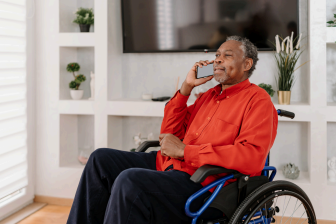 caring arms
caring arms
 07-06-2024
07-06-2024
 1142 views
1142 views
Understanding Supported Independent Living (SIL)
Supported Independent Living is a program provided under the National Disability Insurance Scheme (NDIS) that helps people with disabilities live as independently as possible in their own homes or shared living arrangements. SIL helps or provides supervision with daily tasks such as personal care, meal preparation, household chores, and community participation.
Who is Eligible for Supported Independent Living Services?
To be eligible for SIL, you must be an NDIS participant and have significant daily support needs that cannot
be adequately met by other supports or informal care arrangements. You should also meet certain eligibility
criteria outlined by the NDIS. Your NDIS plan will outline if you are eligible for SIL and what level of support you
require.
How Does Supported Independent Living Work?
SIL can be provided in various settings, including your own home, a shared living arrangement, or a
supported accommodation service. The support workers will assist you with the tasks you need help
with, as outlined in your NDIS plan. The level of support can range from drop-in support to 24/7 assistance,
depending on your needs.
 SIL can provide support with:
SIL can provide support with:
- Personal care (showering, dressing, grooming)
- Household tasks (cleaning, laundry, meal preparation)
- Social and community participation
- Skill development and capacity building
- Behavior management and emotional support
How to Access SIL Services Under NDIS?
If you are an NDIS participant and believe you may be eligible for SIL, you can discuss this with your NDIS planner or support coordinator during your plan review. They will assess your needs and determine if SIL is appropriate for you. Once approved, you can choose a
SIL provider that fits your needs and preferences SIL is designed to help people with disabilities live more independently and participate in their communities. It provides the necessary support to ensure individuals can maintain their daily routines, develop skills, and enjoy a good quality of life.

 SIL can provide support with:
SIL can provide support with:






